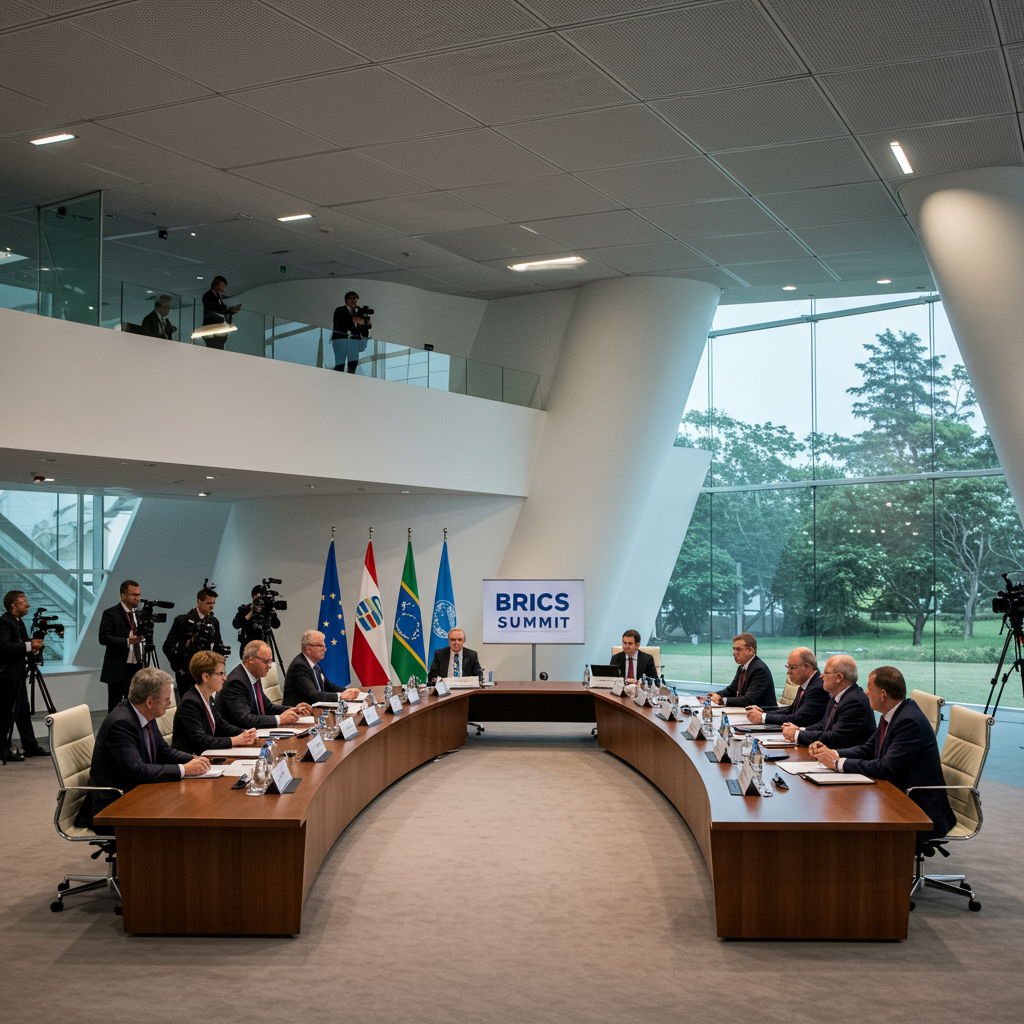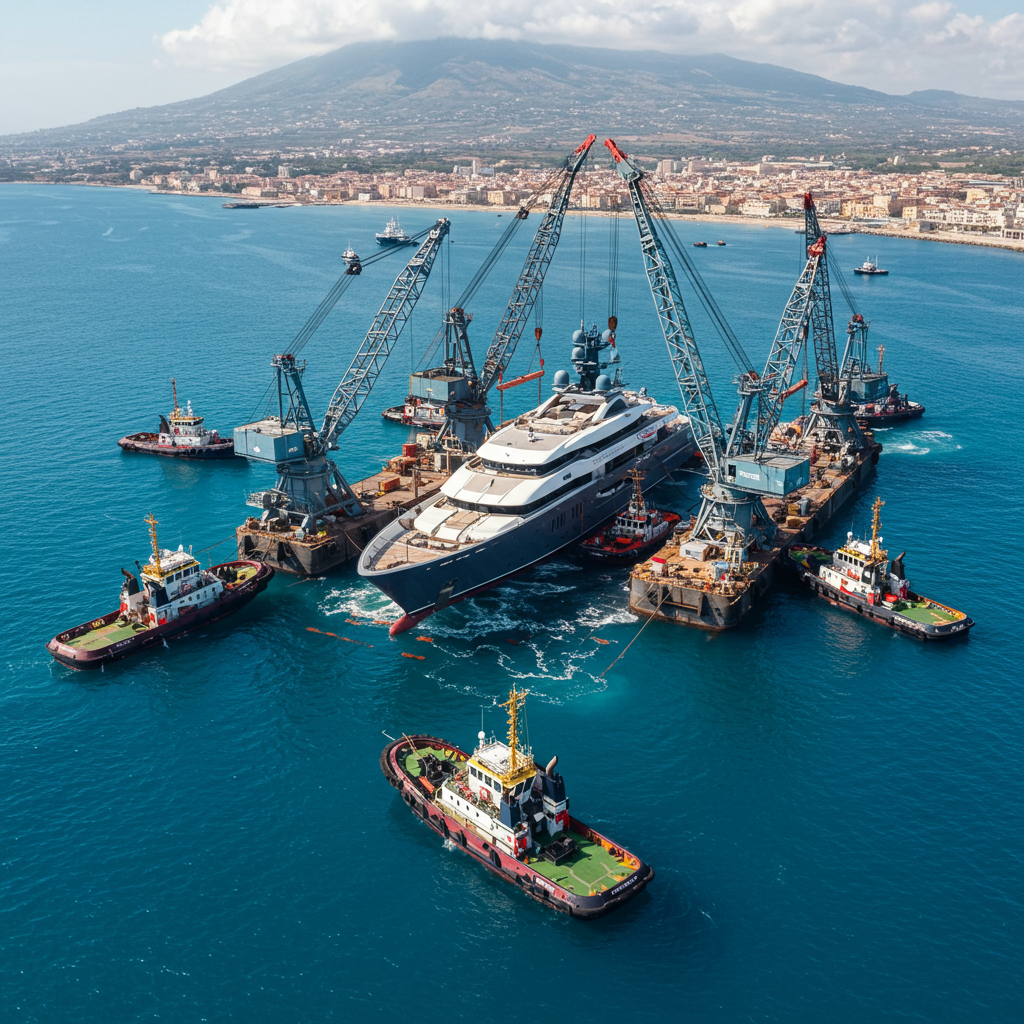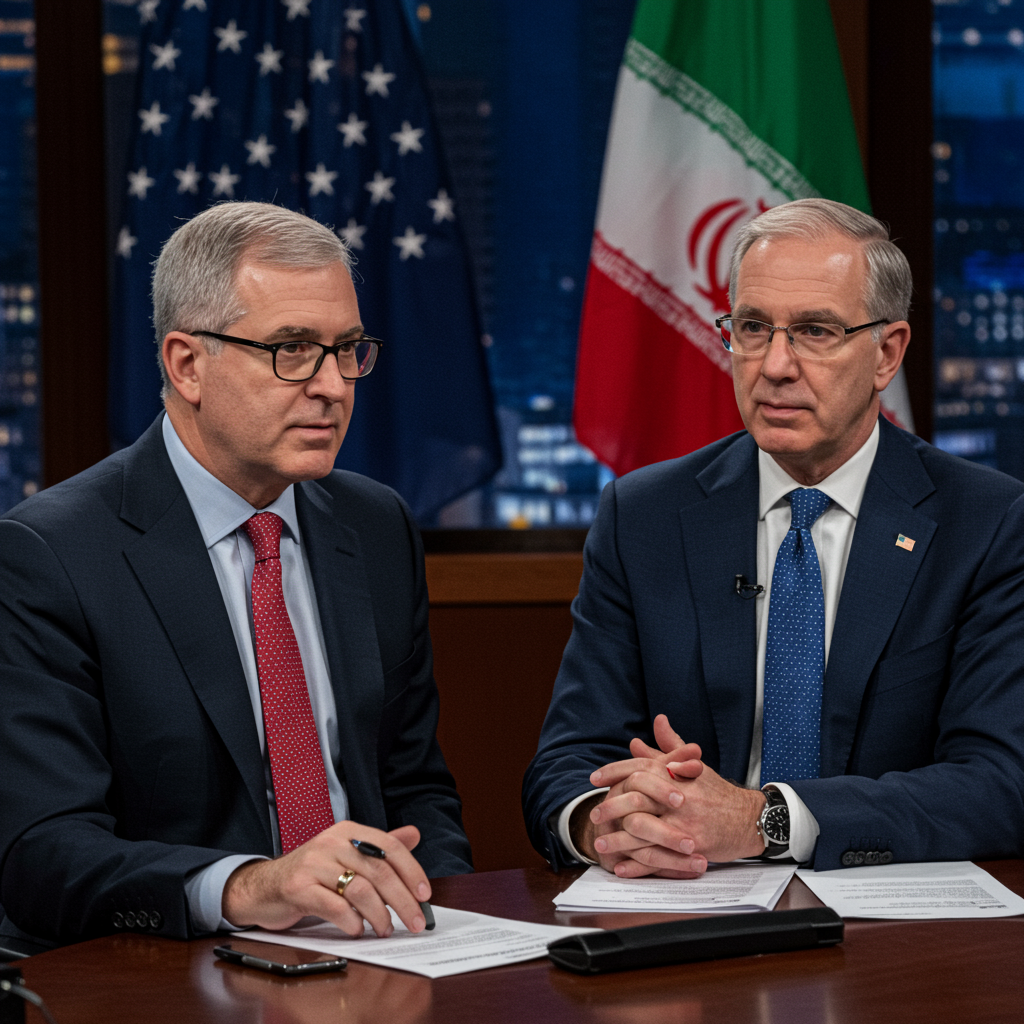The brics alliance, a powerful collective from the global south, recently converged in Rio de Janeiro, Brazil. This critical meeting aimed to revitalize their unified stance on global challenges. Hosted at the stunning Museum of Contemporary Art, the summit occurred as the United States signals a potential shift away from international commitments. For Brazil, the gathering also served as vital preparation for the upcoming UN climate conference, Cop30, scheduled for November in Belém.
Brazilian President Luiz Inácio Lula da Silva didn’t mince words. Opening the summit, he painted a stark picture of the current global landscape. Eighty years after the establishment of the UN, born from the defeat of fascism, the world faces “unparalleled collapse of multilateralism,” Lula stated. He warned that crucial achievements, including global climate agreements and trade frameworks, are now under serious threat. Lula further highlighted how the BRICS group’s own autonomy is facing external pressures.
Geopolitical tensions dominated discussions. Lula specifically pointed to the impact of substantial US tariffs imposed on several BRICS nations. He noted threats of even higher penalties if the bloc explores alternatives to using the US dollar for international trade. Military conflicts are escalating globally. Lula condemned US missile strikes on Iran, a BRICS member. He also denounced the “genocide carried out by Israel in Gaza,” Russia’s actions in Ukraine (Russia is a founder member), and Nato’s move to allocate 5% of GDP to military spending. “It is always easier to invest in war than in peace,” Lula observed, adding that “the fear of a nuclear catastrophe has returned to everyday life.”
Brazilian diplomats view the BRICS alliance as a cornerstone of an emerging global order. With figures like Donald Trump advocating an “America first” approach, they see a potential shift. This could move global governance away from a single superpower’s dominance. Instead, it might evolve into a more balanced, multipolar international system.
BRICS Influence and Internal Challenges
In theory, the BRICS group possesses considerable global leverage. Its 11 full member nations collectively represent about 40% of the world’s population. They also account for 40% of the global economy. Crucially, they contribute over half of the world’s greenhouse gas emissions. By these measures, BRICS significantly outweighs the G7 group, comprised mostly of wealthy, ideologically capitalist countries primarily from the global north.
However, the alliance grapples with notable divisions and inherent imbalances. China’s economic output and CO2 emissions are roughly equivalent to all other BRICS members combined. This disparity was underscored by President Xi Jinping’s decision not to attend the Rio talks in person. His absence, unexplained, fueled speculation about China’s long-term commitment to the organization.
Internal tensions within BRICS have reportedly escalated since 2014. According to Oliver Stuenkel, an associate professor at FGV in São Paulo, these divisions became even more pronounced following Russia’s invasion of Ukraine. Russian President Vladimir Putin participated only virtually. This was reportedly due to an international criminal court warrant against him. Other key leaders were also absent, including Egypt’s President Abdel Fattah al-Sisi. Iran’s President Masoud Pezeshkian, initially expected, sent his foreign minister instead following US and Israeli attacks on Iran in June.
Navigating Global Issues: The Rio Declaration
The summit concluded with the release of the 31-page Rio de Janeiro declaration. While the document condemned military actions in Iran and Gaza, and criticized tariffs, its language was notably restrained. It even included reassurances regarding the importance of the US dollar. Analysts suggested this cautious tone was strategic. Brazil likely sought to avoid attracting potential US tariffs or antagonizing key nations ahead of Cop30. Stuenkel noted a general sentiment of keeping the summit “as low key as possible.” Brazil prioritizes Cop30 as its most critical international event this year. The nation sees climate change as an area where it can genuinely lead on the global stage.
The BRICS bloc positions itself as a crucial voice for the global south. These nations are disproportionately affected by the climate crisis. This shared vulnerability provides a strong incentive for the group. They aim to re-engage wealthier nations in a multilateral approach to addressing this shared global problem. A decade ago, the group was acknowledged for its positive role in achieving the Paris Agreement.
Environmental organizations urged BRICS leaders to step up. Greenpeace, for instance, called for the bloc to fill the climate leadership void left by the US. “This is a seismic opportunity to drive bold, collaborative global south leadership,” said Anna Cárcamo of Greenpeace Brazil. Many BRICS nations are themselves highly vulnerable to climate impacts.
Climate Action and Funding Challenges
In their declaration, BRICS leaders reaffirmed their commitment to multilateralism for tackling the climate threat. They pledged unity towards achieving the goals of the Paris Agreement. A key demand was for “accessible, timely and affordable” climate finance. This funding is deemed essential for facilitating a just energy transition in developing nations. The leaders welcomed Brazil’s initiative to launch a fund at Cop30. This fund aims to secure long-term financing specifically for conservation efforts.
However, concrete details on who will provide the necessary funds remained vague. The statement merely “encouraged potential donor countries to announce ambitious contributions.” Reports indicate Brazil has approached China and Middle Eastern BRICS members for seed funding. Yet, the bulk of required capital is expected to come from wealthy northern-hemisphere nations. These countries are widely considered most responsible for the historical emissions causing the climate crisis.
The declaration also expressed pushback against certain European Union policies. It criticized “discriminatory protectionist measures under the pretext of environmental concerns.” These measures included carbon border adjustments and initiatives promoting deforestation-free trade. Notably, the declaration did not include a timeline for phasing out fossil fuels. Instead, it acknowledged that fossil fuels would continue to play an “important role in the world’s energy mix.” The BRICS membership now includes several major oil and gas producers. While this is true, their plans for increasing production reportedly lag behind those of the G7, particularly the US, Canada, and Australia.
Rewriting Global Rules: UN Reform
BRICS leaders appeared most united in their frustration. They highlighted perceived double standards and exclusionary practices in global governance. Rewriting the rules of this global system is a central objective for Brazil. The nation has advocated for a significant overhaul of the United Nations. Brazil calls for the UN to become “more democratic, representative, effective and efficient.” A key component is increasing the representation of developing countries in the UN’s main decision-making bodies. This goal has been a priority on the BRICS agenda for many years. It also partly aligns with recent calls from scientists and civil society groups. They argue for shaking up UN structures, particularly within the climate negotiation process. This process was criticized last year as being overly influenced by fossil fuel lobbyists and deemed “not fit for purpose.”
Despite the calls for transparency in global governance, the summit itself showed limited openness. On the first day, media access to national delegations was severely restricted. Civil society groups were noticeably absent. Their non-attendance may have been influenced by the heavy security presence. Rows of military vehicles equipped with water cannons and hundreds of troops carrying assault rifles patrolled the closed-off streets.
Brazil, historically a strong advocate for multilateralism, attempted to bridge divides during the summit. However, the nation faces even greater challenges at Cop30 in November. Preparatory climate talks in Bonn recently highlighted significant funding gaps. Wealthy nations, particularly the EU, were reluctant to cover missing climate funds. This shortfall stemmed from the US withdrawal from the Paris Agreement under a previous administration. The issue of climate finance, alongside widening global conflicts, seems likely to overshadow the Cop30 gathering in Belém. This leaves nations in the global south questioning the true nature of the “new world order” – is it a genuine opportunity for change, or merely an illusion?
Frequently Asked Questions
What were the main challenges discussed at the BRICS summit in Brazil?
The BRICS summit in Rio de Janeiro addressed numerous complex challenges. Brazilian President Lula highlighted a collapse of multilateralism and threats to global climate and trade regimes. Leaders discussed rising military tensions, including US actions against Iran and conflicts in Ukraine and Gaza. Economic pressures, like US tariffs and challenges to dollar use, were also key topics. Internally, the group grappled with the absence of key leaders like China’s Xi Jinping and Russia’s Putin, reflecting internal divisions and power imbalances, especially China’s dominance.
How does the recent BRICS summit in Brazil relate to the upcoming Cop30 climate conference?
The BRICS summit served as crucial preparation for Brazil’s hosting of the Cop30 UN climate conference in Belém in November 2025. Climate change was a major focus, with BRICS positioning itself as a voice for the global south, which is highly vulnerable to climate impacts. The Rio Declaration reaffirmed support for achieving Paris Agreement goals and called for essential climate finance. Brazil also pitched its plan for a conservation fund at Cop30, aiming to secure funding from wealthier nations considered historically responsible for emissions.
What does the BRICS push for a “new world order” signify for global governance?
The BRICS alliance, particularly Brazil, advocates for a “new world order” to replace the current system. This push comes amid perceptions of the US retreating from the international stage and seeks a more equitable, multipolar global governance system. A central goal is reforming the United Nations to make it more democratic, representative, and efficient, with increased representation for developing countries. This signifies a desire to challenge existing power structures and reshape international institutions to better reflect the interests and influence of the global south.




